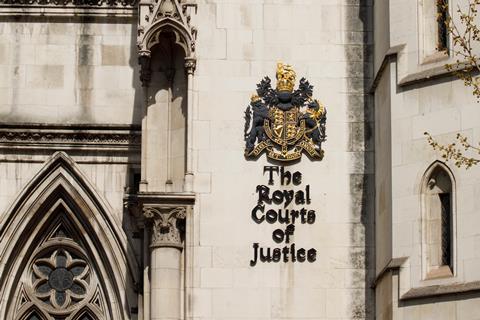Judges have been reminded of their limited scope for assisting litigants in person as part of a Court of Appeal ruling on a contested will.
Lord Justice Snowden said there were ‘fundamental problems’ with the conclusion of a High Court judge that litigants had been treated fairly because the original trial judge had effectively done their job for them.
In Rea & Ors v Rea two unrepresented parties had contested what was described as a ‘genuine mistake’ by a deputy master in restricting them from cross-examining their sister – the respondent – during a trial in September 2019.
The first appeal was dismissed by Mr Justice Adam Johnson who ruled the deputy master had sought to assist the appellants at trial ‘by being flexible and adopting an inquisitorial role’.
Snowden disputed whether he had, but concluded that the unfairness of the trial was not remedied by the actions of the deputy master to help the appellants. The court heard that the deputy master questioned the respondent on a number of topics raised by the appellants. When they indicated they wished to raise some questions themselves, he intervened after four questions to stop those which he considered irrelevant.

Looking at the wider issue, the appeal judgment made a number of observations about what questions judges are authorised to put to a witness and how involved they should be.
‘[Civil litigation in England] is not conducted by the judge on an inquisitorial basis,’ said the appeal judge. ‘The fundamental importance of the right of a litigant to cross-examine an opponent’s witnesses in our adversarial system has been emphasised in many cases, and is the foundation for what has been termed the “core principle” that the judge should remain above the fray and neutral during the elicitation of the evidence by the parties.’
Snowden said there was a ‘world of difference’ between a judge taking steps to assist an LiP to ‘put’ their case to a witness for comment and an effective cross-examination designed to extract admissions.
He cautioned against judges acting as a ‘quasi-advocate’ for an LiP, and said that while the rules allowed a judge to put questions to a witness, this should not be ‘on a free-range basis’.
He added: ‘The suggestion that the judge might adopt an inquisitorial role can be understood as a suggestion that the judge might actively question the LIP during the openings at the start of the trial, as a means of teasing out what the LIP’s case really is. But this has nothing to do with the judge acting as an inquisitor of witnesses during the subsequent evidential phase of a trial.’
The appeal was upheld and the matter remitted to the High Court for retrial. Following this ‘most unfortunate result’ Snowden urged both parties to do everything possible to reach a consensus out of court.
This article is now closed for comment.



























12 Readers' comments